Last Modified: October 22nd, 2025
3 min read
Selecting the right enterprise resource planning (ERP) system is a critical decision for any business aiming to scale. In 2025, two top contenders continue to dominate the conversation: Microsoft Dynamics 365 and NetSuite. Both offer robust tools to streamline finances, manage operations, and enhance customer relationships—but which is the better fit for your business? Let’s break down the key features of these leading ERP platforms to help you decide.
1. Analytics and Reporting: NetSuite Stays Ahead
In 2025, NetSuite continues to lead the way in analytics and reporting. Its unified data platform delivers a single, real-time view of business performance, enabling companies to spot trends, measure KPIs, and make data-driven decisions faster. By contrast, Microsoft Dynamics 365 offers basic analytics but still relies on multiple systems, making comprehensive reporting more challenging.
Winner: NetSuite for its seamless and advanced reporting capabilities.
2. Financial Management and Accounting
Dynamics 365 has made strides in financial management, but businesses handling complex subscription-based accounting still face limitations. While Dynamics 365 Finance requires partner apps for subscription billing, NetSuite integrates subscription billing natively. With the SuiteBilling add-on, businesses can easily manage customized pricing and invoicing schedules.
Winner: NetSuite for its built-in subscription billing capabilities.
3. Billing and Payments: Simplified with NetSuite
In 2025, NetSuite maintains its edge with extended billing and payment options built directly into its platform. Businesses can securely collect payments without relying on third-party apps. Dynamics 365, however, still requires external partner applications for payments, making the process less seamless.
Winner: NetSuite for its streamlined billing and payment functionality.
4. Customization: Flexibility Where It Counts
NetSuite’s unmatched flexibility remains a key selling point. It allows businesses to customize nearly every aspect of their ERP system, from adding custom workflows to tailoring forms. Dynamics 365 offers some customization but doesn’t match the depth or ease of NetSuite’s options.
Winner: NetSuite for businesses needing a tailored ERP solution.
5. Customer Relationship Management (CRM)
Dynamics 365 still excels in CRM functionality with intuitive tools for lead tracking, customer segmentation, and sales management. NetSuite’s CRM platform also offers strong features, including automated marketing campaigns and customer service tools, while seamlessly integrating with financials and inventory management.
Winner: Tie – Both platforms provide excellent CRM tools, but your choice may depend on your specific needs.
6. Integrations: NetSuite’s Open Architecture Leads
Integration capabilities play a crucial role in ERP systems. NetSuite’s open architecture makes it easy to connect with third-party applications, ensuring businesses can customize and extend their ERP as needed. While Dynamics 365 is improving in this area, it still trails behind NetSuite’s flexibility.
Winner: NetSuite for its easier integrations.
7. Revenue Recognition: A Vital Advantage for NetSuite
In 2025, revenue recognition remains a challenge for many businesses. NetSuite simplifies this process with its robust revenue recognition engine, fully compliant with ASC 606 and IFRS 15. This automation eliminates time-consuming manual tasks like journal entries and reconciliations. Dynamics 365 still lacks native revenue recognition functionality, giving NetSuite a clear advantage.
Winner: NetSuite for its advanced revenue recognition tools.
Beyond Features: Additional Considerations in 2025
While features matter, other factors like cost, scalability, and support can make or break your ERP experience.
Cost-Effectiveness
NetSuite’s tiered subscription model remains more affordable than Dynamics 365’s enterprise licensing, especially for growing businesses. With flexible pricing, NetSuite continues to offer exceptional value for its comprehensive ERP suite.
Winner: NetSuite
Scalability
As businesses scale in 2025, NetSuite stands out with its ability to accommodate rapid growth. Adding new users or customers is seamless. Dynamics 365, however, requires additional licenses, which can add up quickly.
Winner: NetSuite
Ease of Use
NetSuite prioritizes user-friendly interfaces, making it easy for teams to adopt and integrate. Dynamics 365, while powerful, still has a steeper learning curve due to its complex features.
Winner: NetSuite
Support Options
NetSuite’s 24/7 support and dedicated account managers ensure businesses receive personalized assistance. Dynamics 365’s support options are less tailored, making NetSuite the preferred choice for customer service in 2025.
Winner: NetSuite
NetSuite: The Winning ERP System in 2025
After a detailed analysis, NetSuite is the clear winner for businesses looking to optimize their operations with a scalable, customizable, and cost-effective ERP system. Its comprehensive feature set, advanced integrations, and superior support make it the ideal choice in 2025.
While Dynamics 365 offers strong CRM tools and basic ERP functionality, it falls short in key areas like billing, revenue recognition, and customization. For businesses aiming to stay ahead in a competitive landscape, NetSuite delivers everything needed to grow with confidence.
Ready to transform your business operations? Contact us today to learn how NetSuite can help you thrive in 2025 and beyond!!
Serge is a Managing Partner and the head of sales and business development.
Published on: October 22, 2025
